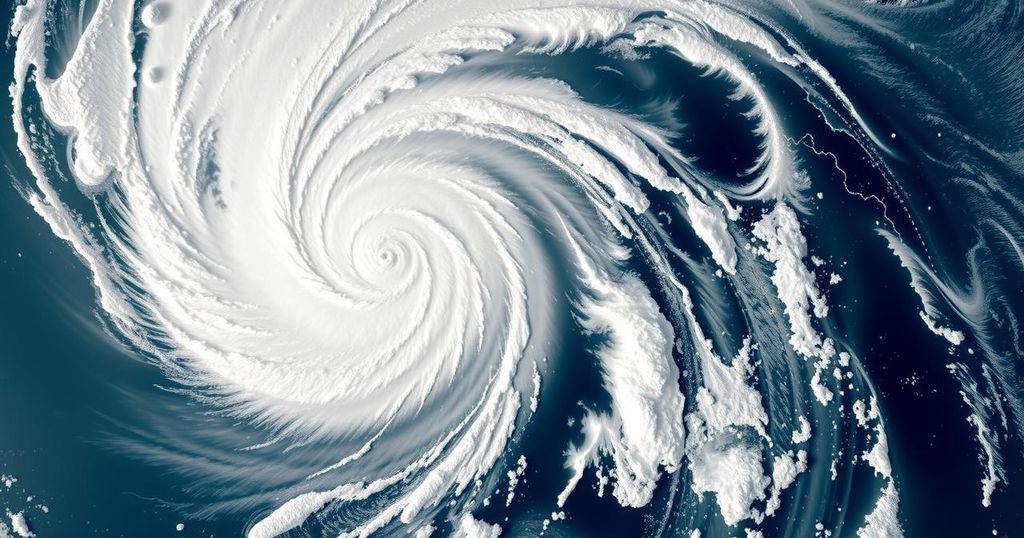Tropical Cyclone Chido Devastates Mayotte and Threatens Eastern Africa

Tropical Cyclone Chido has devastated Mayotte with winds over 220 km/h, causing significant damage and leading to extensive emergency responses. While no immediate fatalities were reported, rescue efforts are underway. Chido is expected to continue toward Mozambique, impacting millions. Previous cyclones in the region have highlighted the urgent need for enhanced climate preparedness.
Tropical Cyclone Chido has caused significant devastation in the French territory of Mayotte, located in the Indian Ocean, as it progresses toward eastern Africa. The cyclone, with winds exceeding 220 kilometers per hour, resulted in substantial property damage, including the destruction of roofs and homes. Mayotte’s Prefect, Francois-Xavier Bieuville, described the cyclone as the most severe since 1934, noting widespread loss among residents despite no immediate reports of casualties.
Currently, rescue operations are underway as emergency response teams mobilize. French Interior Minister Bruno Retailleau confirmed the extensive damage, stating that state and local emergency services are fully engaged in recovery efforts. Reports from local media indicate that thousands of homes are without power, and many buildings have been destroyed. Additionally, Chido poses an ongoing threat to neighboring Comoros, where authorities have ordered a red alert and measures to secure the safety of the population. A concerning situation has arisen regarding a missing group of eleven fishermen.
Looking forward, forecasters predict that Chido will continue its trajectory towards Mozambique, potentially impacting up to 2.5 million individuals in the areas of Cabo Delgado and Nampula. Already, Malawi and Zimbabwe have begun preparations for flooding and potential evacuations in anticipation of the storm’s arrival. The cyclone season in the southeastern Indian Ocean occurs from December to March, with previous storms creating humanitarian crises in southern Africa.
Cyclone Chido is part of an increasing trend of severe cyclonic activity in the Indian Ocean region, particularly affecting Madagascar and surrounding territories, including Mayotte and the Comoros Islands. This season, stretching from December to March, has produced intense storms affecting various countries, often leading to extensive damage and loss of life. Past cyclones, such as Idai and Freddy, illustrate the recurring humanitarian crises experienced by these regions due to flooding, landslides, and health risks associated with stagnant water. Climate change is exacerbating this issue, leading to stronger and more destructive storms, affecting countries that have minimal contributions to global climate changes. Rescue and recovery efforts are crucial for the affected populations, particularly as these regions have limited resources to respond effectively to such natural disasters. Increased awareness and proper climatic preparations are essential in mitigating future risks and impacts on vulnerable communities.
Tropical Cyclone Chido has inflicted severe damage on Mayotte, marking one of the most destructive storms in the region’s history. With ongoing efforts to assist the affected population amidst the continuing threat of the cyclone, neighboring regions are also bracing for potential impacts. The rising severity of cyclones in this region highlights the urgent need for global climate action and preparedness strategies for the most vulnerable populations in southern Africa.
Original Source: www.voanews.com








